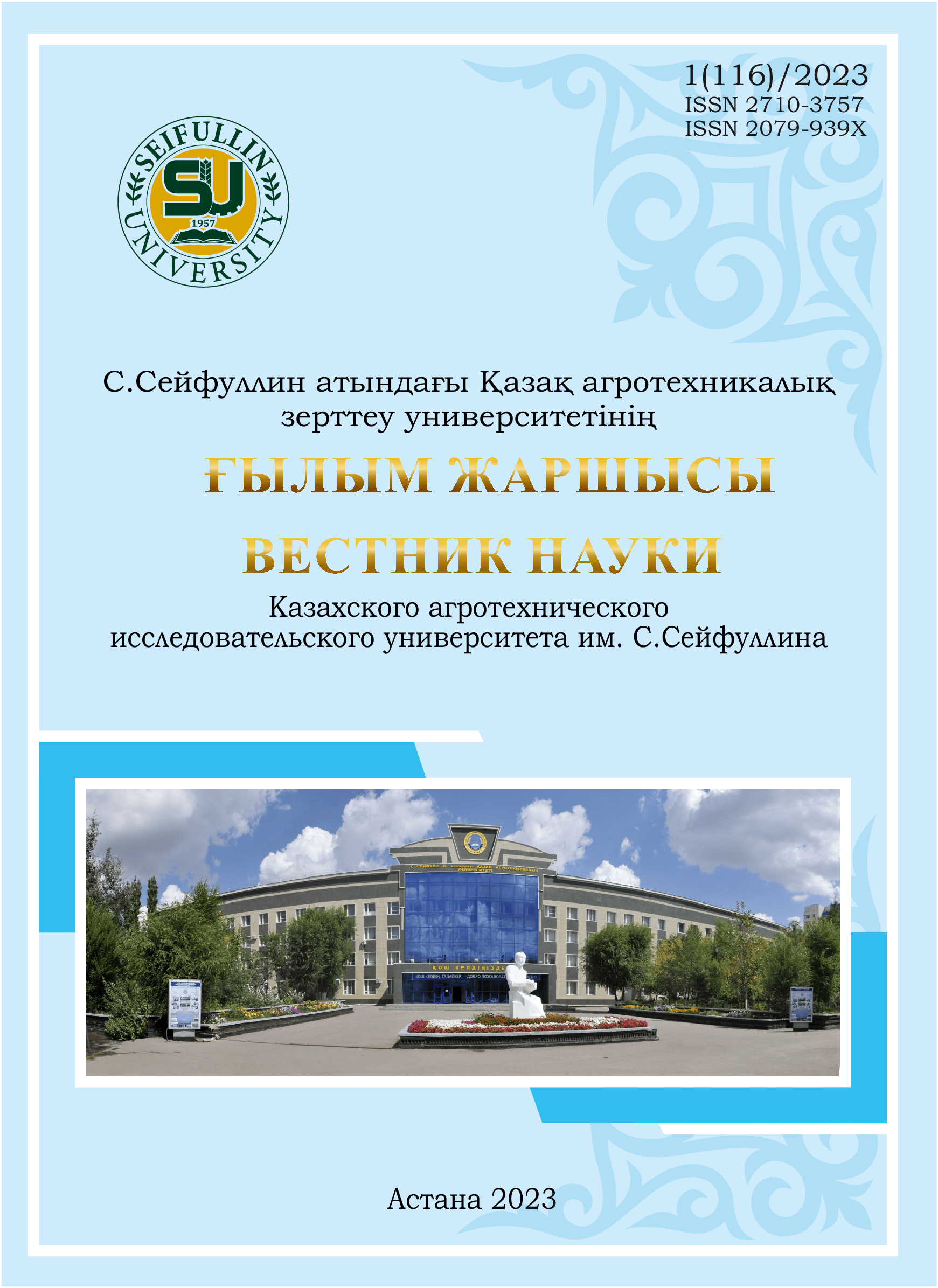EFFECTS OF STOCKING DENSITY ON GROWTH AND DEVELOPMENT OF REPLACEMENT YOUNG DUCKS IN SEPARATE GROWING BY GENDER
DOI:
https://doi.org/10.51452/kazatu.2023.1(116).1297Keywords:
duck; stocking density; separated rearing; growth and development; bodyweight; replacement young stock; cross.Abstract
An excessively high stocking density can affect the growth and development of ducks. The optimal stocking density should change with the age of ducks. The article presented the results of the experiment on the effect of stocking density on the growth, development and viability of replacement young ducks of the local population during separate growing at the Bishkul Poultry Farm LLP in Northern Kazakhstan in 2022. The study was carried out in ages the day of birth to 49 days in 3 stages with a transfer on day 22 and day 35, respectively. The stocking density of ducks before transfer in the first growing period, in the control group was 20 birds/m2, in the first experimental group - 18 birds/m2; in the second experimental group - 16 birds/m2; and in the third experimental group - 14 birds/m2, respectively. After transfer in the second growing period, the stocking density of the ducks in the control group was 10 birds/m2, in the first experimental group - 9 birds/m2; in the second experimental group - 8 birds/m2; and in the third experimental group - 7 birds/m2. In the third period, the stocking density in the control group was 7 birds/m2, in the first experimental group - 6 birds/m2; in the second experimental group - 5 birds/m2; and in the third experimental group - 4 birds/m2. In the study, increasing stocking density had a negative effect on the growth and development of ducks. It is noted that with an increase in stocking density in experimental groups bodyweight, absolute gain and average daily gain decreased, thus negatively affected these indicators.

